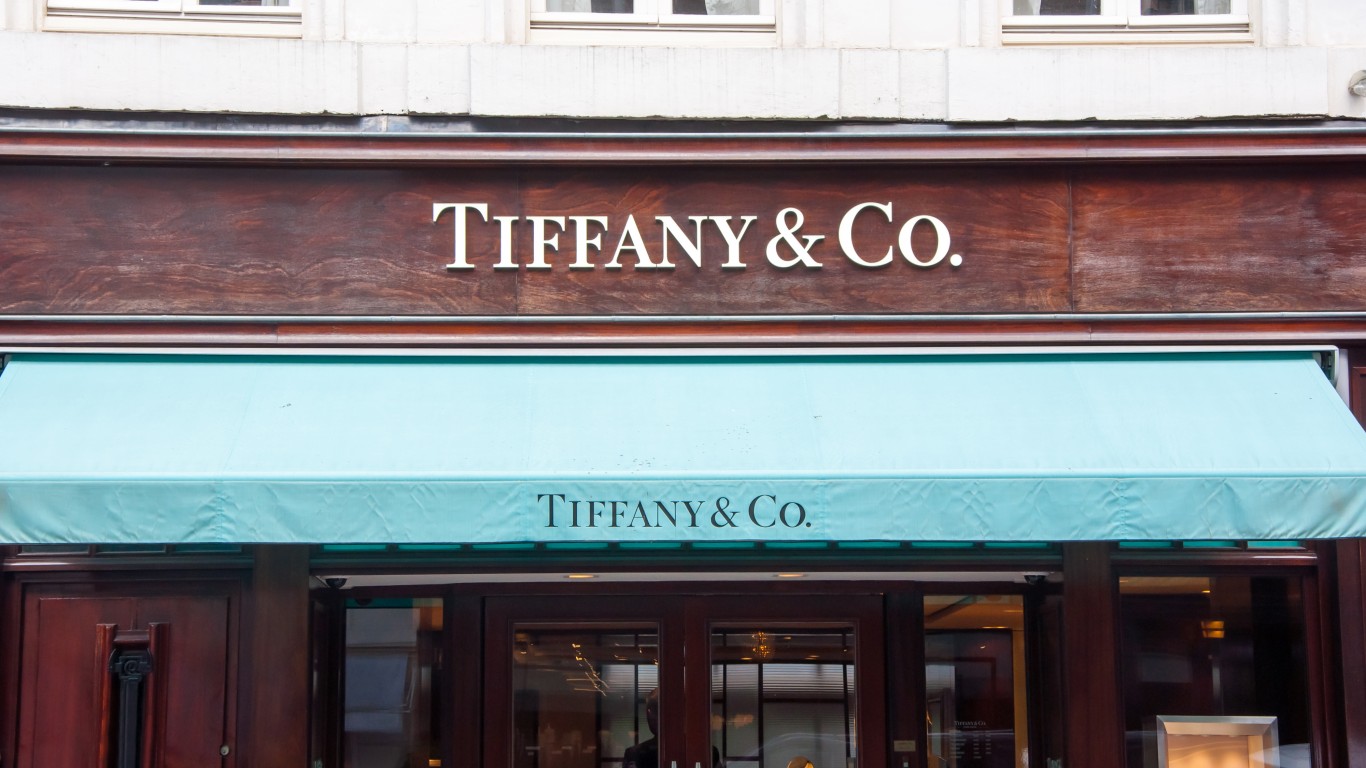
The French can be touchy. A current example: French Minister for Europe and Foreign Affairs, Jean-Yves Le Drian, has asked LVMH Moët Hennessy Louis Vuitton CEO Bernard Arnault to delay LVMH’s acquisition of Tiffany & Co. (NYSE: TIF), stating that Arnault “will understand the need to take part in our country’s efforts to defend its national interests.” More on that in a moment.
The acquisition, announced in November of 2019, was to be an all-cash transaction in which LVMH paid $135 per share (total $16.2 billion) for Tiffany. The deal was supposed to close in the middle of this year, following a vote by Tiffany’s shareholders and required regulatory approvals. That last bit is the sticky part.
According to a lawsuit filed by Tiffany on Wednesday, LVMH was responsible for “all antitrust-clearance risk and all financial risk related to adverse industry trends or economic conditions” and the French firm has failed to meet the antitrust-clearance obligation. Tiffany claims that LVMH has not even filed for antitrust approval in the European Union or Taiwan and that applications in Japan and Mexico have not yet been ruled on, “all due to LVMH’s concerted efforts to delay or avoid receipt of regulatory approvals in those jurisdictions in breach of the Merger Agreement.”
On Tuesday, September 8, LVMH general counsel Bernard Kuhn, sent Tiffany general counsel, Leigh Harlan, a letter enclosing, without comment, a letter dated August 31 from Le Drian (identified as “the France Secretary of State”) calling on Arnault to defend France’s national interest.
In his letter, Le Drian cites the U.S. government’s decision “to implement an additional customs duty on the import of certain French goods, in particular goods in the luxury sector, in reaction to France adopting a digital services tax.” The new U.S. duty is scheduled to go into effect on January 6, 2021.
The French government finds the customs duty “legally objectionable” according to World Trade Organization (WTO rules and, “intends, together with its European partners, to take measures in order to dissuade the American authorities from putting these tariff sanctions into effect.”
In view of this context, Le Drian notes, “proposed investments by French companies in sectors that could be subject to such sanctions must be reevaluated.” LVMH, therefore, “should defer” the closing of its deal for Tiffany until January 6.
In an announcement of Tiffany’s lawsuit, Chairperson Roger Farah argued that there is no legal basis for the French government “to breach a valid and binding agreement.” LVMH also violated the merger agreement by holding unilateral discussions with the French government without telling Tiffany and “this supposed official French effort to retaliate against the United States for proposed new tariffs has never been announced or discussed publicly; how could it possibly then be an effort to pressure the United States into revoking the tariffs?”
Finally, Farah said, Tiffany is unaware of any other French firm having been asked to defend the country’s national interest and, therefore, “it is all the more clear that LVMH has unclean hands.”
According to Tiffany, LVMH will not extend a previously agreed November 24 outside date for the merger to January 6, “effectively stating that LVMH no longer intends to complete the transaction.” Tiffany is seeking an expedited hearing in Delaware Chancery Court in order to get a ruling before November 24 “ordering LVMH to comply with its obligations and complete the transaction on the agreed terms.”
In Wednesday’s premarket session, Tiffany stock traded down about 10%, at $110.05 in a 52-week range of $86.39 to $134.42.
Thank you for reading! Have some feedback for us?
Contact the 24/7 Wall St. editorial team.



